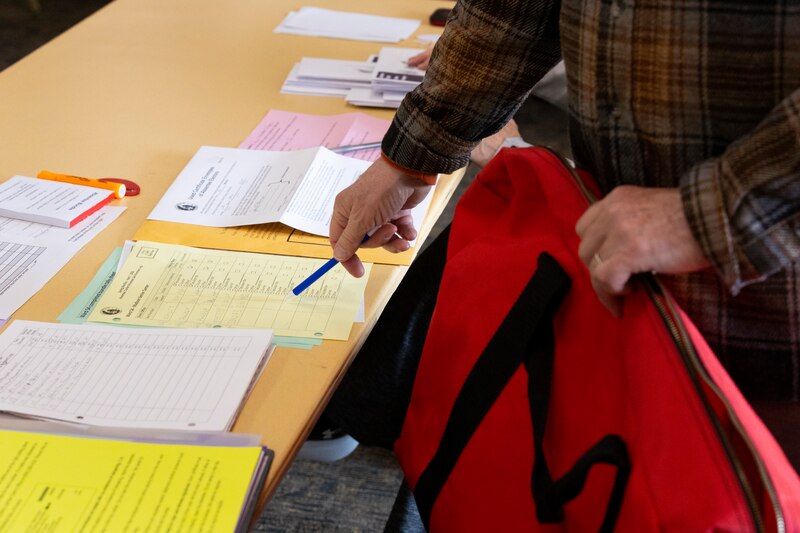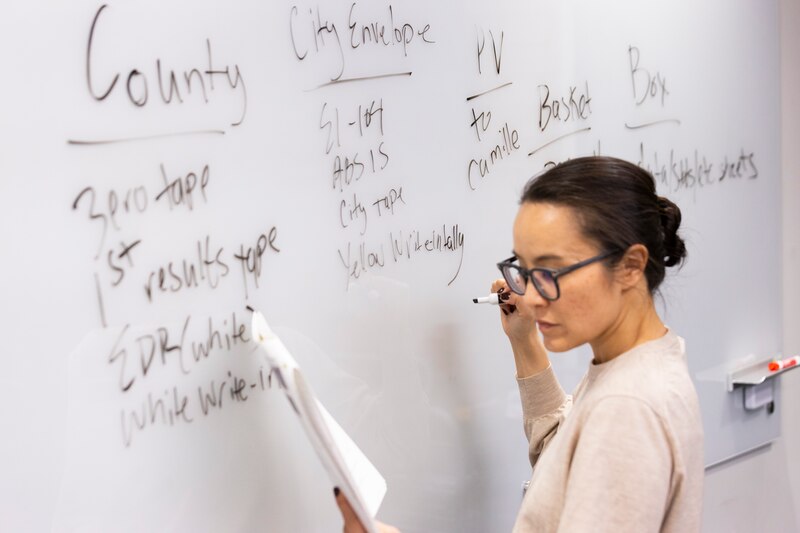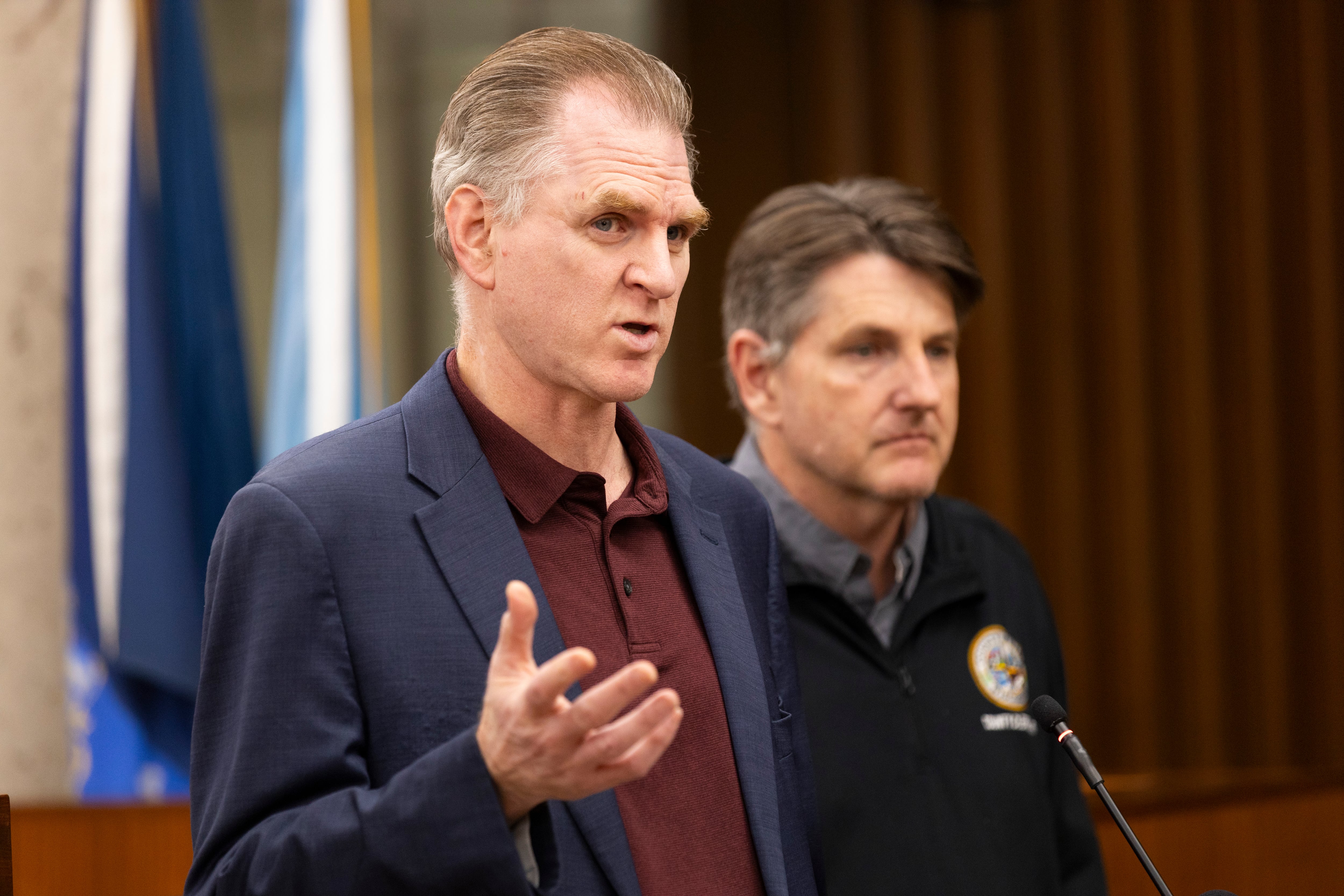Votebeat is a nonprofit news organization reporting on voting access and election administration across the U.S. Sign up for Votebeat Wisconsin’s free newsletter here.
It is too soon to definitively say whether Madison’s April 1 election went off without any problems. But city and county election officials told Votebeat that they were confident that new absentee ballot procedures put in place after 193 ballots went uncounted in November would prevent another major error.
Tuesday was the first high-profile election in Madison since the snafu in November, when 193 ballots in unopened ballot bags from two polling stations went uncounted during the presidential contest. Staff didn’t discover the ballots until much later, a critical lapse that prompted state and city investigations and the suspension of Madison Clerk Maribeth Witzel-Behl in March. A voter lawsuit is expected.
Witzel-Behl’s replacement is City Attorney Mike Haas, formerly the Wisconsin Elections Commission administrator and a longtime election lawyer. This was the first election he has ever run as a municipal clerk.
Amid the investigation, city officials implemented new procedures to better track absentee ballots and ensure that oversights are detected before results are finalized.
New procedures add to the paperwork
The changes were apparent at Madison polling places, which had multiple new checklists and required paperwork to ensure that officials opened and processed every bag containing absentee ballots. They were also apparent at the clerk’s office, where at 9 p.m., employees had begun looking through election materials from each of the city’s 108 polling sites to make sure there weren’t any missing ballots.
At Madison West High School, where 68 of the ballots went missing in November, chief inspector Peter Quinn said just before 4 p.m. that the new procedures make a repeat error “basically impossible.”
Quinn has been a chief inspector before, but he wasn’t the chief inspector at the school in November when the ballots went missing.
“It’s a mistake that should not have been made,” Quinn said about the November incidents, adding that the new procedures make it easier to catch discrepancies.
Each polling site now receives updated lists throughout the day detailing every absentee ballot bag delivered. Each bag is identified by a seal number. Election officials check off one blank on that list when they open each bag, and another blank when they process the ballots. This way, election officials know how many carrier envelopes they receive — and how many they’re supposed to count.
Poll workers also record the number of ballots in each bag on two separate documents and, at the end of the night, complete a summary sheet confirming that the number of absentee ballots received matches the number counted or rejected.

Kevin Kennedy, former state elections chief and now a chief inspector at Madison’s Senior Center, called the new process “good documentation” — but said it can be overwhelming.
“My problem,” he said at 2 p.m., standing in front of the table where absentee ballots get processed, “is that there’s so many things to keep track of here.”
Kennedy pointed to an absentee ballot processing guide given to poll workers and said he wished the clerk’s office provided equally clear instructions for navigating the added procedures. While he believes the system is now less prone to error, he warned that paperwork redundancies can slow down the process.
Procedures still need to be refined
A half-mile away, Sam Peplinski, 19, stood outside the Nicholas Recreation Center polling place — the same site where his absentee ballot went uncounted in November.
“It was my first time voting,” he said of the experience, which shook his trust in elections. “It was just shocking.”
He said it’s unrealistic to expect perfection, but the loss of nearly 200 ballots made the issue “large enough to not be ignored.”
This time he voted at the polls on Election Day — but only because he just recently learned of the election date. “An unintended benefit,” he said.
At the end of the night, Haas, the interim city clerk, told Votebeat the new procedures might have been a little “overkill,” but said after the November snafu it’s better to have too much paperwork than too little.
Witzel-Behl, the city clerk now on leave, put in place many of the new procedures between November and February, and more were added since then, but Haas said there wasn’t much time to get feedback on those procedures from the city’s poll workers.
“I think we just need more time to refine those, make sure that they’re workable for the inspectors,” he said.
Deputy Clerk Bonnie Chang told Votebeat that staff would spend Wednesday and Thursday looking through all the election materials that polling places return to the clerk’s office, making sure there aren’t any missing ballots there. They were also checking a new sheet that each polling site’s chief inspector fills out to make sure the number of ballots processed is equal to the number of ballots they received.

A few other election issues, and a Supreme Court win for Crawford
Elsewhere in Wisconsin, the April 1 election ran relatively smoothly. Several municipalities in northern Wisconsin had to change polling locations last minute because of a snowstorm. Langlade County Clerk Judy Nagel said a few of the original polling stations around the county didn’t have power or a generator hookup, but the new sites were operating just fine. In Milwaukee, seven polling stations ran out of ballots in the evening due to unexpectedly high turnout, but Milwaukee’s chief election official, Paulina Gutiérrez, said they were getting replenished.
In the Wisconsin Supreme Court race — the costliest judicial race in U.S. history — liberal candidate and Dane County Judge Susan Crawford beat conservative Waukesha County Circuit Court Judge Brad Schimel, the state’s former attorney general.
Voters overwhelmingly approved a ballot measure putting the state’s photo ID requirement for voters in the Wisconsin Constitution — something that won’t change election policy since the measure is already law.
Alexander Shur is a reporter for Votebeat based in Wisconsin. Contact Alexander at ashur@votebeat.org.





